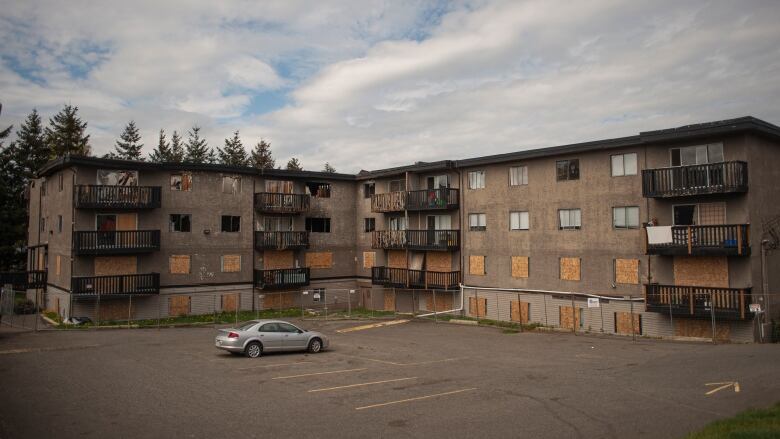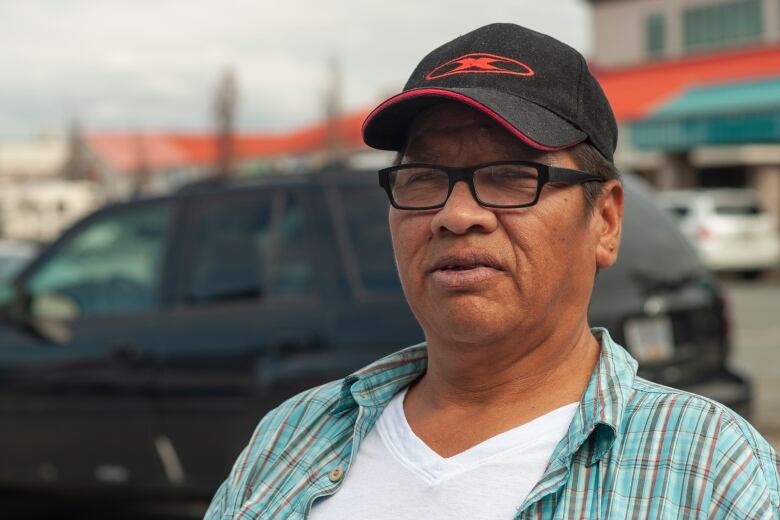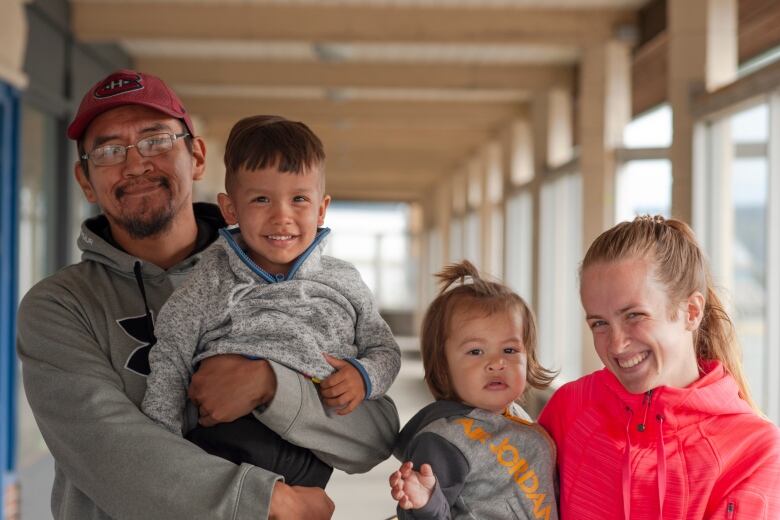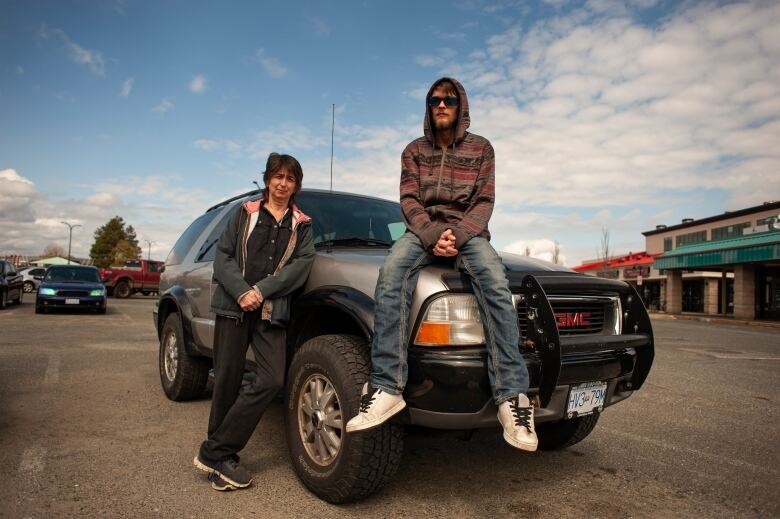Tenants left homeless after apartment fire struggle with Campbell River housing crisis and a pandemic
Nearly 90 Campbell River residents are struggling to find housing while emergency supports are running out

UPDATE, April 30, 2020: BC Housing says nearly 90 tenants displaced by the April 8 fire will beprovided hotel accommodations and daily meals by the provincial agencyuntil May 31.
No home, no belongings and no plan:this was not how Fred Johnson thought he would be waiting out the COVID-19 crisis.
Johnson is one of nearly 90 residents left homeless after a low-income apartment building fire in Campbell River, B.C., on April 8 and he says a lack of communication from the government has left him feeling unsafe and unwanted.
"I just feel like we are throw away people," said Johnson, choking back tears. "There are a lot of vulnerable people that are going to be heading out into the streets."
Johnson and his neighbours are currently staying at the Discovery Inn Hotel in downtown Campbell River. Their rooms and meals are paid for byB.C. Emergency Support Services.

In situations like this, provincial emergency support normally lasts 72 hours enough time for those impacted to find friends or family to stay with or for their insurance to kick in. But few of the building's tenants had renters insurance or a place to go after the fire.
'Scared as heck'
The province extended the emergency coverage by two weeks to April 22in recognition that allowing 90 people to become homeless in the middle of the COVID-19 health crisis would run counter to their public health objectives. But after that Johnson and his neighbours would be on their own and likely out in the street.
"We are scared as heck," said Johnson on the morning of April 20. "There are elderly people, women and single mothers, people who have weakened immune systems."
That evening,the province extended their emergency support again, this time to April 25,and the City of Campbell River agreed to pay to keep the residents housed until April 30. What will happen after that is unclear.

Finding a home in Campbell River is no easy task at the best of times.
According to the Canadian Mortgage and Housing Corporation (CMHC), the vacancy rate was just 0.4 per cent in 2019 the lowest on Vancouver Island. Adding to the challenges, Johnson says tenants like him who lived at 645 9th Avenue are stigmatized.
"I'm not going to sugar coat nothing. Everybody thinks everyone in this building is nothing but drug addicts, alcoholics, and bums," he said.
Johnson, who works seasonally as a fisherman, is adamant that characterization is unfair and untrue, adding that it is the same stereotype First Nations people are often saddled with. Johnson along with roughly 75 per cent of the building's inhabitants are Indigenous.
Working on the front line without a home
The building's reputation is something Donna Brautigam has struggled with as well. She and her son lived there for thepast two years. Since the fire she has not wasted any time in reaching out to landlords.
"I fill out applications, I've emailed people, I phone them but they don't respond," she said

Brautigam works at a local grocery store. Shesays the support that she has receivedfrom the community in her role as a front line worker during the COVID-19 pandemic has been heartwarming, but she worries about how she will continue the work without a roof over her head.
"If we can't find a place, we are going to be in our car," she said. "I have to go work, back and forth and I'll have no shower and no changes of clothes, right?"
Several organizations are working to try to find housing for the fire evacuees, including the John Howard Society and the Campbell River Coalition to End Homelessness.
Kristi Schwanicke, a coordinator with the coalition, said the community has come together to support fire evacuees through donations.
"It would be great if we could come together and support them with housing," Schwanicke said. "That would take some change at a municipal level around bylaw amendments for secondary suites," she said
Schwanickesaid she hopesall levels of government won't allow people like Johnson and Brautigam to fall through the cracks.












_(720p).jpg)


 OFFICIAL HD MUSIC VIDEO.jpg)
.jpg)



























































































